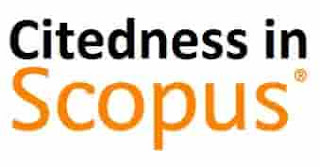The Awakening of self-existence in the Covid-19 pandemic through "Sesaji Nusantara" as Rajut Kejut Craftivism
DOI:
https://doi.org/10.31091/mudra.v37i2.1959Keywords:
Keywords: RajutKejut, Craftivism, Covid-19, Self-existenceAbstract
The Covid-19 pandemic has forced people to minimize their activities and choose essential things to do. Apart from maintaining personal and environmental hygiene, mental health is the priority. The RajutKejut Community is a group of female crocheters who yarn bombs with crochet works. RajutKejut received an invitation from the Jakarta Biennale 2021 to exhibit their work in a public space. Their work “Sesaji Nusantara”, presented a crochet installation in the form of flowers and crops arrangements, as an offering to God. Through crocheting in a quarantine atmosphere, a space for reflection and contemplation is formed. This is essential to consider that besides preserving quality intake, the body's immunity can also be increased by maintaining mental health and happiness. As a research question, how RajutKejut community through activity body by making communal crafts can create an understanding of themselves and their environment, which is an understanding that leads to the formation of mental health amid the Covid-19 pandemic. This study uses the phenomenological perception by Maurice Merleau-Ponty as an analysis method which is bodily experiences could help people to comprehend their world, particularly in the current pandemic situation. At the end of the discussion, this research shows that the pandemic conditions encourage people to look back at the past, realize their existence in present, and project themselves to plan their next steps. This can be realized by carrying out bodily activities consciously, which brings humans back to retrace their existence in the world as humans who have bodies that can 'make' to fulfill their needs, using their bodies, therefore that awareness of self and self-existence is awakened.
Downloads
References
AntaraNews.com. (2009, February 6). Jakarta Biennale 2009 Masuki Tahap Akhir. https://www.antaranews.com/berita/132150/jakarta-biennale-2009-masuki-tahap-akhir
Covid19.go.id. (2020, April 2). Peraturan Pemerintah Republik Indonesia Nomor 21 Tahun 2020 tentang PSBB. https://covid19.go.id/p/regulasi/pp-no-21-tahun-2020-tentang-psbb-dalam-rangka-penanganan-covid-19
Creswell, J. W. (2007). Qualitative inquiry & research design: Choosing among five approaches (2nd ed). Sage Publications.
Fauziyyah, R., Awinda, R. C., & Besral, B. (2021). Dampak Pembelajaran Jarak Jauh terhadap Tingkat Stres dan Kecemasan Mahasiswa selama Pandemi COVID-19. Jurnal Biostatistik, Kependudukan, Dan Informatika Kesehatan, 1(2), 113. https://doi.org/10.51181/bikfokes.v1i2.4656
Fitzpatrick, T. (2018). Craftivism: Manifesto and Methodology. The Commons Social Change Library.
Jakarta Biennale. (2021). Jakarta Biennale 2021 ESOK. https://jakartabiennale.id/2021/
Kaligis, F., Indraswari, M. T., & Ismail, R. I. (2020). Stress during COVID-19 pandemic: Mental health condition in Indonesia. Medical Journal of Indonesia, 29(4), 436–441. https://doi.org/10.13181/mji.bc.204640
Kompas.com. (2020, March 3). Fakta Lengkap Kasus Pertama Virus Corona di Indonesia. https://nasional.kompas.com/read/2020/03/03/06314981/fakta-lengkap-kasus-pertama-virus-corona-di-indonesia?page=all
Ocula.com. (2021, December 8). Jakarta Biennale Takes Steps Towards the Immediate Future. https://ocula.com/magazine/features/jakarta-biennale-2021/
Siswayanti, N. (2013). Javanese Ethical Values in Tafsir Al-Huda. Analisa: Journal of Social Science and Religion, 20(2), 207–220. https://doi.org/10.18784/analisa.v20i2.177
Tjaya, T. H. (2020). Merleau-Ponty Dan Kebertubuhan Manusia. Kepustakaan Populer Gramedia
Torrido, A. (2021). Penanganan Dampak Sosial dan Ekonomi Pandemi Covid 19 Melalui Pendekatan Kewirausahaan Sosial Studi: Pemberdayaan Usaha Kecil Menengah (UKM). Jurnal Penelitian Kesejahteraan Sosial, 20(1). https://doi.org/10.31105/jpks.v20i1.2464
Wulandari, S., Guntur, G., & Marianto, M. D. (2021). “Merajut Keberagaman” as a Rajutkejut Craftivism. SSRN Electronic Journal. https://doi.org/10.2139/ssrn.3799895
Sari Wulandari, Guntur, & Martinus Dwi Marianto. (2020). RajutKejut Art: Participatory Knitting Installation Artwork in Public Spaces. IICACS : International and Interdisciplinary Conference on Arts Creation and Studies, 1(1), 69-75. https://doi.org/10.33153/iicacs.v2i1.17
Downloads
Published
How to Cite
Issue
Section
License
Copyright (c) 2022 Sari Wulandari, Guntur -, M. Dwi Marianto

This work is licensed under a Creative Commons Attribution-NonCommercial-ShareAlike 4.0 International License.
- Copyright on any open access article in a journal published by Mudra Jurnal Seni Budaya is retained by the author(s).
-
The Creative Commons Attribution License 4.0 formalizes these and other terms and conditions of publishing articles.










